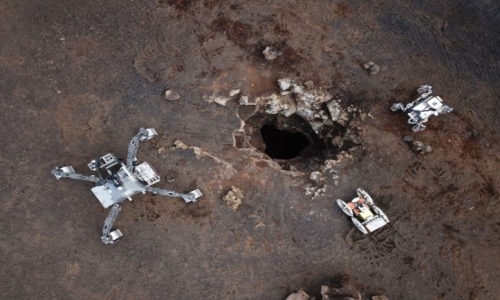


 2:40:41
2:40:41  2024-06-14
2024-06-14  1106
1106
The Qur'an was revealed in the seventh century. Many statements pertaining to physical phenomena are dispersed throughout the Qur'an. These are there in the Qur'an to draw the attention of people to the wonders of Allah's creation. Any other seventh century book making statements about the physical universe would surely contain mistakes. Our knowledge of physical sciences in the twentieth century is far advanced beyond the imagination of people living the seventh century. What will come as a surprise to many people is that of all the numerous statements about scientific matters found in the Qur'an, not one of those have proved contrary to the established facts of science. On the other hand, many of those statements have already been verified by modern scientific studies, and we confidently expect that as various fields of knowledge advance, other Quranic statements will likewise prove true.
Let us look at some of the statements which science has already verified. Concerning the creation of the heavens and the earth, the Qur'an says that prior to the creation, the Heaven was smoke. God then commanded it and the earth to come into being and they came willingly (see surah 41:1 1). How does that compare with modern scientific explanations? Let us hear a scientific explanation and then judge for ourselves.
The French scientist Dr. Maurice Bucaille in his book called The Bible, the Qur'an and Science explains: "At the earliest time it can provide us with, modern science has every reason to maintain that the universe was formed from a gaseous mass principally composed of hydrogen and a certain amount of helium that was slowly rotating" (p.147).
Didn't the Qur'an say that the Heaven was smoke before its creation? Dr. Bucaille explains the connection between his description and that of the Qur'an as follows: "Smoke is generally made up of a gaseous substratum, plus, in more or less stable suspension, fine particles that may belong to solid and even liquid states of matter at high or low temperature" (p. 143). He therefore sees no contradiction of the Quranic use of the Arabic word dukhan (translated smoke) and a modern interpretation of that word as a gaseous mass with fine particles when speaking of the formation of the universe. We notice here two remarkable features of the Qur'an. The first feature is that it expresses scientific truths that will be verified many centuries later. The second feature is that the Qur'an expresses those truths using terms and expressions that would avoid confusing its first readers in the seventh century. The seventh century reader of the Qur'an can easily relate to the image of smoke, and the twentieth century scientist can easily interpret the word as a gaseous mass.
Reality Of Islam |
|

A large inf

Choosing th

A new NURBS

A research
 9:3:43
9:3:43
 2018-11-05
2018-11-05
10 benefits of Marriage in Islam
 7:5:22
7:5:22
 2019-04-08
2019-04-08
benefits of reciting surat yunus, hud &
 9:45:7
9:45:7
 2018-12-24
2018-12-24
advantages & disadvantages of divorce
 11:35:12
11:35:12
 2018-06-10
2018-06-10
 6:0:51
6:0:51
 2018-10-16
2018-10-16
 9:42:16
9:42:16
 2022-10-19
2022-10-19
 5:57:34
5:57:34
 2023-03-18
2023-03-18
 9:30:2
9:30:2
 2021-11-12
2021-11-12
 7:34:7
7:34:7
 2023-02-28
2023-02-28
 8:25:12
8:25:12
 2022-03-09
2022-03-09
 2:5:14
2:5:14
 2023-01-28
2023-01-28
 1:34:8
1:34:8
 2022-02-01
2022-02-01
 5:41:46
5:41:46
 2023-03-18
2023-03-18
| LATEST |